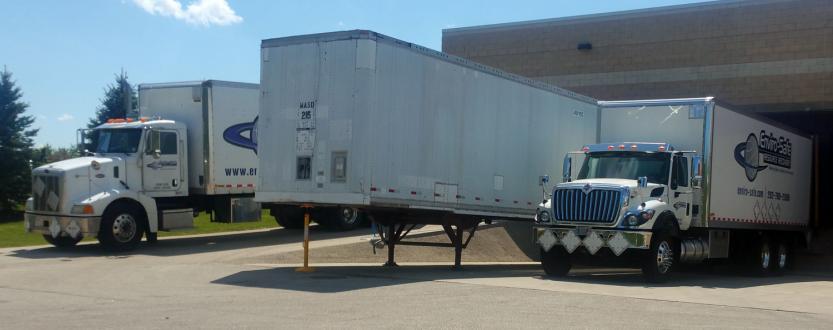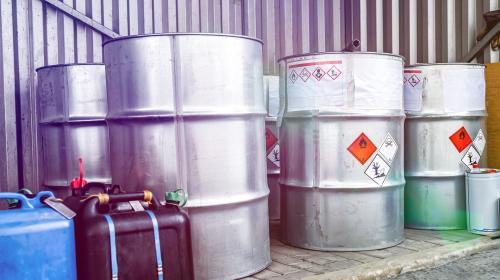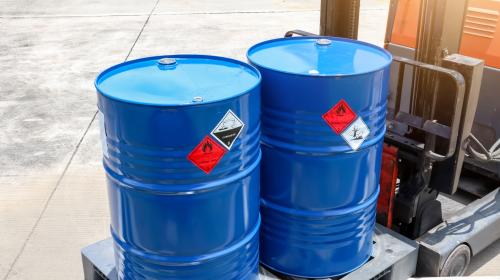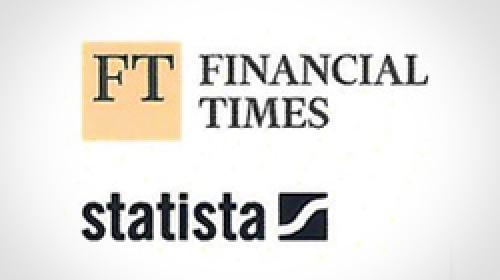Some business owners mistakenly believe that their generated waste is no longer their responsibility once it has been transported away from their facility. But the Environmental Protection Agency’s (EPA) Resource Conservation and Recovery Act (RCRA) holds generators liable for safely generating, transporting, storing, and disposing of their waste from “cradle-to-grave.” This means if your waste is not in compliance during any part of the process, your business may be subject to fines and pursued in an enforcement action, even if the violation happens with your transporter or Treatment, Storage, and Disposal Facility (TSDF). This is why it is crucial to select a qualified, reputable TSDF when dealing with your waste. But how do you select a reputable TSDF for your business? What questions should you ask a TSDF? Read our tips below on how to select a TSDF.
Does My Business Need To Work With a TSDF?
In general, “cradle-to-grave” liability applies to generators of hazardous waste, though in some cases, it may also apply to commercial non-hazardous waste. Wastes subject to cradle-to-grave liability include:
- Hazardous waste is generated by a Large Quantity Generator (LQG) or Small Quantity Generator. Very Small Quantity Generators (VSQG) are exempt from most cradle-to-grave responsibilities (though not all)
- Universal waste
- Used oil
- Non-hazardous waste is subject to regulation by a state with an authorized hazardous waste program
In addition to following federal regulations for waste management, other TSDF facility requirements include being licensed by their state agency. In Wisconsin specifically, TSDF hazardous waste management activities include recycling/reclaiming solvents and mercury, fuel blending for energy recovery, and treatment to facilitate disposal. There are no operating hazardous waste disposal facilities (landfills) in Wisconsin. While some small generators may choose to handle their waste on-site, they must be licensed as a TSDF (unless the activity is specifically exempt); however, most generators work with a TSDF.
What Makes a Qualified TSDF?
What can your business do to make sure your TSDF is reputable? Tips for finding a qualified TSDF to handle your waste and other TSDF facility requirements (and therefore, your money and business reputation) include:
Tip 1: Check the EPA and your local state agency’s lists (Wisconsin’s can be found here) to make sure a TSDF has the correct permits and an EPA ID number as well as follows all TSDF facility requirements. Request copies of permits from any TSDF you are considering working with – this should include any companies they work with as subcontractors. Make sure to ask whether they are permitted to handle your specific waste.
Tip 2: Check federal and state online compliance databases for a TSDF’s compliance history, such as the EPA’s Enforcement and Compliance History Online (ECHO). The site allows you to find compliance records for the last two years.
Tip 3: Use your network. Ask for references from other local businesses for a TSDF they would recommend and check with your local Better Business Bureau to find a reputable TSDF in your area. Ask any TSDF you are considering to provide contact information for a client they have worked with in the past who could give you an assessment of their services.
Tip 4: Understand how your waste will be handled by your chosen TSDF. Not all TSDFs handle waste the same way, and some are better than others at finding sustainable, cost-effective solutions for your business. For example, Enviro-Safe’s recycling and resource recovery programs mean we manage our customers’ waste in a sustainable fashion, ultimately resulting in cost savings for them. We help find alternative uses and a beneficial applications for waste our clients might otherwise have paid to ship to a landfill or incinerator out of state. We help companies improve their landfill diversion rates and find uses for expired products and raw materials. Our best tip? Look for a TSDF that can help you turn your waste into a sustainable solution and a potential revenue stream.
Tip 5: Ask the right questions when interviewing a TSDF. Here’s a quick list:
- Do you have the proper permits for my specific waste(s)?
- What types of materials, treatment, storage, and/or disposal are authorized by your permit?
- When was your last inspection?
- What violations have been found in the last two years? How have you resolved these issues?
- Are there any current enforcement actions against you?
- How will waste be transported to your facility?
- If the TSDF handles transportation, does the transporter have the proper permits?
- How is hazardous waste managed?
- If wastes are treated, how are residues handled?
- Do you offer recycling and resource recovery services to your clients?
- Are all of the companies you contract with also permitted to handle our specific waste?
- How long will it take from when the waste is received at your facility until final disposal?
- How will you notify your clients of the final disposal of waste?
- Do you have an environmental compliance manager on staff?
How Finding the Right Hazardous Waste Treatment, Storage, and Disposal Facilities Affect Your Bottom Line
Ultimately, the generator is held legally responsible for its waste. If contamination, spills, accidents, or any mishandling occurs, it is possible that your company will face financial and reputational repercussions. Doing your due diligence when seeking a TSDF partner will keep your company safe from these liabilities.
Learn more about how our team at Enviro-Safe Resource Recovery can help your business. With over 17 years in the industry, our experts can not only help you comply with local, state, and federal regulations but also find sustainable solutions. Contact us today.



